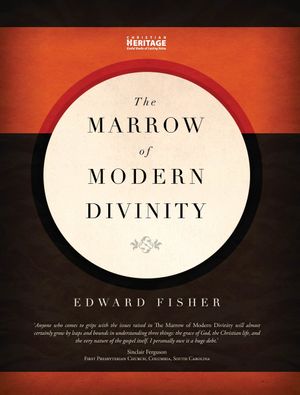Author: Edward Fisher
Publisher: Christian Heritage
392 pages
Purchase from: Christian Focus
(£24.99)
Nobody studying Scottish church history can get far without becoming aware of this book’s great importance. Although written by an Englishman and widely read in his country, it probably had a greater theological and spiritual influence on Scotland than any other volume, except the Bible. Although now over 400 years old, its message is highly relevant today.
It addresses an issue that has confronted Christian people and churches ever since New Testament days, the tendency to move in our thinking about the Christian faith either towards legalism or licence. The New Testament churches were afflicted with both types of practical heresy, as we see in Galatians on the one hand and in 2 Peter and Jude on the other.
The author is firm in his convictions and faithful in his admonitions, but he is never harsh. His book has a distinctive format, ideal for the issue he handles. Part 1 is a dialogue between four characters: a new Christian, a minister, a legalist and an antinomian. This makes for clarity, and makes the more remarkable its sweet mildness of tone, which did not always characterise books on contentious issues written at that period.
Part 2 is an exposition of the Ten Commandments, with a concluding chapter on the difference between the law and the gospel.
Its author was Edward Fisher, a layman, and this reveals the extent of biblical understanding prevalent among many lay people in the early seventeenth century.
Its influence in Scotland was due largely to its advocacy by Thomas Boston a hundred years or so after its publication. It stirred up a great controversy, because the tendency to legalism was rife in the Scottish church at that time and this book touched a sensitive nerve.
Boston’s helpful notes are included in this volume, along with useful introductions by Philip Ryken and William VanDoodewaard.
Every preacher of the gospel would benefit greatly from reading this work (Sinclair Ferguson says he owes it ‘a huge debt’), but its plain, attractive style and constant reference to Scripture makes it both accessible and profitable for a wide range of readers.
Christian Focus are to be congratulated on the superb appearance of this volume, which is a joy to handle as well as read.



